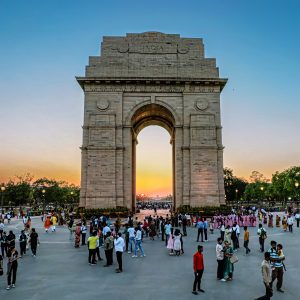Religious influence on Oromo traditions sparks debate in Ethiopia
Evangelical participation at Oromo cultural celebration raises concerns over religious encroachment
ADDIS ABABA, Ethiopia (MNTV) — The annual Irreechaa festival, a cornerstone of Oromo cultural identity in African nation Ethiopia, has sparked renewed debate over the influence of religion on traditional practices.
This year’s celebration saw the participation of evangelical Protestant Oromos, who incorporated gospel songs into the event—a move seen by many as a departure from its indigenous roots and an encroachment on its traditional essence.
The inclusion of Christian-themed performances at Irreechaa has reignited long-standing concerns over how religious beliefs shape, alter, and sometimes overshadow Oromo customs.
Critics argue that the festival, historically a spiritual thanksgiving ceremony tied to indigenous Oromo traditions, is increasingly being reshaped by external religious influences, diluting its original cultural significance.
Supporters of the evangelical participation, however, contend that Oromo identity is dynamic and has long coexisted with various faiths, including Christianity and Islam.
They argue that the expression of religious diversity within Irreechaa reflects the evolving nature of Oromo culture rather than an erosion of its heritage.
The controversy follows recent debates over religious identity within the Oromo community, most notably the backlash against veteran Oromo artist Adam Harun.
A resurfaced speech by Harun urging Oromos to prioritize national identity over religious affiliations led to accusations of blasphemy from Oromo Muslims.
The first video, recorded three months ago, features Harun referring to Ethiopian Prime Minister Abiy Ahmed as a “prophet,” a term traditionally reserved for figures chosen by Allah.
Critics swiftly denounced his statement as blasphemous. However, it was a second, older clip discussing religion and Oromo identity that escalated tensions.
In the speech, Harun urged Oromos to prioritize national identity over religious divisions, arguing that neither Orthodox, Protestant, nor Muslim Oromos had truly experienced religious freedom.
He criticized the focus on Islamic history at the expense of Oromo heritage, a stance that some Oromo Muslims perceived as disrespecting key Islamic figures.
Irreechaa, which marks the end of the rainy season and celebrates gratitude, has long been a symbol of Oromo cultural resilience.







